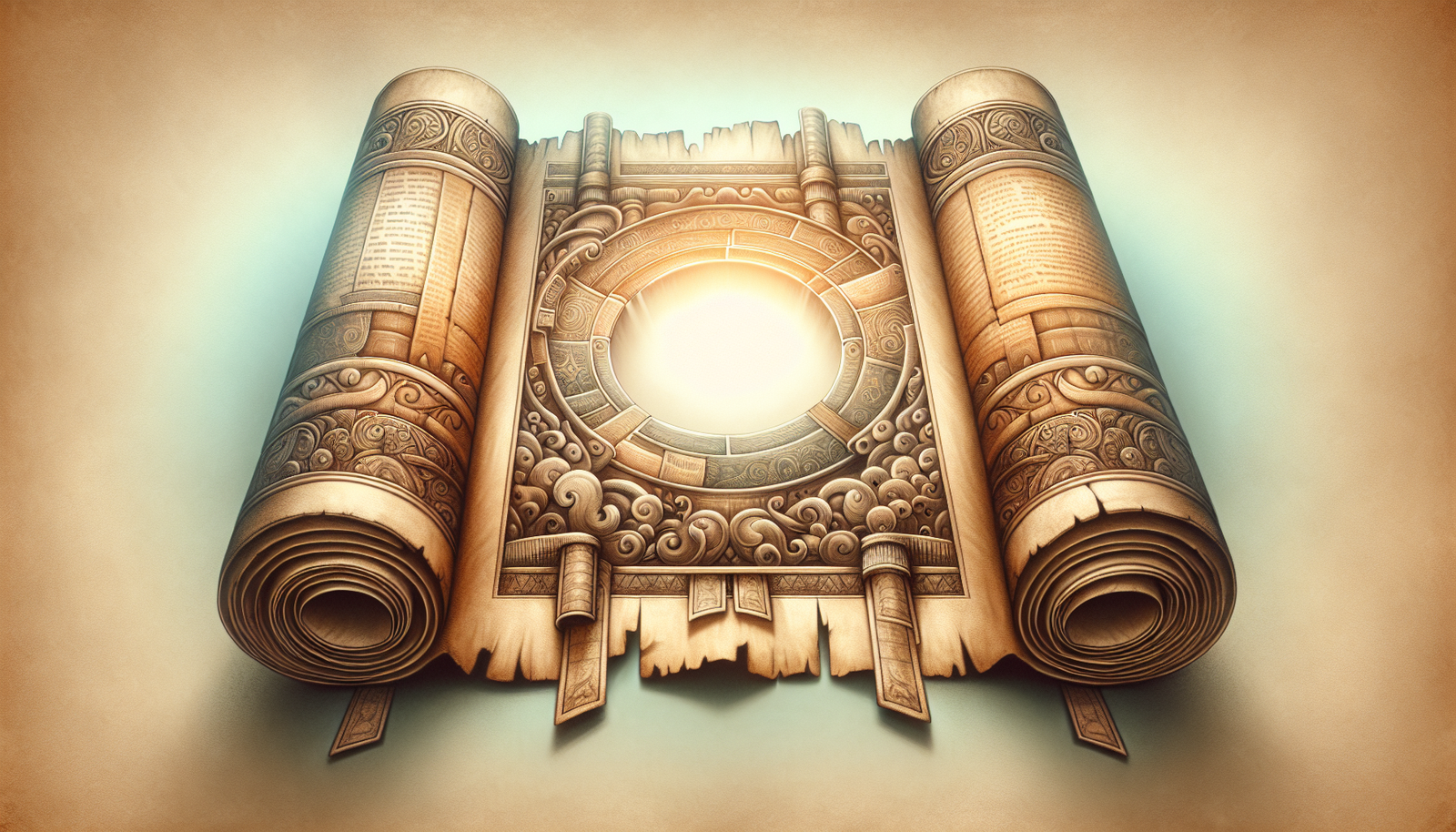What do you think it would be like to have a flood of moral confusion surrounding you, a deluge so powerful that it feels like humanity is drifting farther and farther from its ethical roots? Yet, amid this chaos, the concept of an Ark—the symbol of sanctuary and resilience—might resonate more than ever. This article looks into this paradoxical modern age of moral decay while drawing parallels to the historical and biblical Ark.

Understanding the Era of Moral Decay
Moral decay is sadly not a new narrative; it’s an ongoing saga that weaves through generations. You might have noticed how ethical standards seem to be morphing across social media platforms, political discourse, and daily interactions. It can feel like the values you hold dear are slipping through your fingers. So what’s fueling this feeling of moral decline? Let’s break it down.
The Factors Behind Moral Decay
Changing Social Norms: Societal values have undergone radical transformations over the decades. Behaviors once deemed unacceptable are now commonplace, and vice versa. While change can often lead to progress, sometimes it might also lead to confusion.
Technological Influence: With instant communication comes instant gratification, and not always for the best. The anonymity of the internet often encourages a level of dialogue that can be harmful, influencing public opinion negatively.
Political Climate: Much can be traced back to today’s toxic political environment. Politicians often engage in divisive rhetoric, and when leaders espouse questionable morals, it can normalize unethical behavior among the populace.
Cultural Shifts: As globalization expands, cultures intertwine, leading to conflicts between traditional values and modern practices. The clash can create moral ambiguity, leaving people uncertain about what is right and wrong.
Isn’t it intriguing how all these threads are woven into today’s society, creating a tapestry that sometimes feels more like chaos than coherence?
The Ark: More Than a Vessel
You may be familiar with the Ark of the Covenant—a wooden chest described in the Book of Exodus. But this widely recognized symbol isn’t merely a biblical artifact. It’s a metaphor for safety, hope, and moral guidance.
Historical Significance
Biblical Accounts: The Ark has been a focal point of biblical narratives, representing God’s presence among His people. It contained the Ten Commandments, a set of ethical directives that formed the bedrock of moral behavior.
Physical Journey: The Ark traveled with the Israelites during their tumultuous period, symbolizing divine guidance in a chaotic world. You might ponder how, like those ancient travelers, modern society seeks its own form of moral compass.
The Ark as Symbolic Shelter
As we think about the Ark, it’s not just a relic from the past but rather a poignant symbol reflecting humanity’s perpetual quest for moral shelter in a tumultuous sea of ethics.
A Sanctuary of Values: Just as the Ark housed the Ten Commandments, your own values can serve as a sanctuary in uncertain times. Finding and holding on to these can help you remain anchored in your convictions.
Resilience in Trials: The story of the Ark emphasizes resilience. In a world plagued by uncertainties, drawing strength from your values can empower you to withstand life’s storms.
Doesn’t it make you consider what your own “Ark” might be?

The Ark in Modern Discourse
In contemporary conversations, the Ark isn’t just a relic of biblical history; it serves as an allegory for the moral and ethical anchor that many are desperately seeking in today’s world.
Questions of Ethics in Daily Life
Personal Responsibility: How do you balance personal desires against societal expectations? Just as the Ark represented a covenant, your actions can embody principles you find meaningful.
Public Trust: Where do you find your trust in institutions? The unraveling of long-held customs can lead to questions about authority and integrity, implicating the ideal of the Ark, which instilled faith among the Israelites.
Cultural Repercussions
What does the Ark represent in popular media and culture today? Whether in literature or films, allegories about finding moral anchorage are often seen.
Fictional Narratives: Consider how modern storytelling often parallels the Ark’s significance—characters often strive to find their own ‘arks’ amid turmoil.
Social Movements: Many activists today channel the spirit of the Ark, uniting people around shared values. This can create a sense of safety in numbers as like-minded individuals seek a common cause.
The Intersection of Archaeology and Morality
While pondering the Ark, you might wonder about its factual history and the archaeological elements that lend weight to its narrative. What insights have we gained regarding its significance?
Archaeological Findings
Historical Context: Archaeological digs and studies surrounding ancient Israel provide insights into the societal norms and ethical frameworks of that time.
Physical Evidence: Discoveries related to the Ark, such as references in historical texts and remains that might pertain to the Tabernacle, help paint a picture of life as it was lived.
Understanding Through History
How might understanding ancient ethics influence your perspective on modern morals?
Lessons from the Past: By evaluating the moral compass of ancient peoples, you might better discern today’s ethical challenges.
Continuity and Change: Despite vast differences in culture and technology, many underlying ethical principles remain relevant. The desire for justice, honesty, and community persists.
Theological Insights: Morality Through a Spiritual Lens
How do theological frameworks shape our understanding of moral values?
Foundations of Morality
For many, the Ark embodies more than just a biblical narrative; it represents the divine interest in human ethical conduct.
Spiritual Guidance: The quest for morality is often steeped in religious teachings. Many individuals look to scriptures for ethical direction.
Faith in Stability: The Ark symbolizes a constant, much needed in an evolving society. Perhaps these ancient reminders can tether us to a higher principle.
Contemporary Reflections
When you overlay theological perspectives on today’s moral dilemmas, how does it alter your viewpoint?
Moral Relativism: Acknowledging the temporal nature of some values can highlight a need for foundational ethics, akin to those that the Ark represents.
Faith-Based Movements: Many moral movements today resonate with the ideals of faith, aiming to bring compassionate change through an ethical lens.
Finding Your Ark
As you reflect on the Ark and what it represents, it’s essential to consider how these ideals might manifest in your own life.
Cultivating Personal Values
Identify Core Beliefs: What values are non-negotiable in your life? Defining these can help you build your own metaphorical Ark.
Acts of Kindness: Small actions can create a ripple effect of positivity. Each act builds towards a larger collective moral stance in your community.
Building Community
How can you create an environment that reflects the integrity of an Ark?
Forming Connections: Engaging with like-minded individuals can reinforce your values while contributing to a moral community.
Open Dialogue: Conversations can foster understanding and bridge divides. Sharing your values in a respectful manner can help cultivate a more ethical society.
Concluding Thoughts
As the chaos of moral decay surrounds us, consider the story of the Ark. It serves as a reminder of the unyielding strength of foundational ethics amidst uncertainty. While the world changes, the human longing for safety, community, and moral guidance remains constant.
In your personal journey, you are not alone; the quest for an ethical compass transcends time. Just like the Ark, you have the power to embody resilience and foster hope. By embracing your values and forging meaningful connections, you can contribute your own piece to humanity’s ongoing narrative—one that aspires toward grace, integrity, and ultimately, a more harmonious existence.
So, what will your Ark look like in this era of moral decay? It’s within your power to create a sanctuary, both for yourself and those around you, as we all navigate the tempestuous waters of contemporary life.



